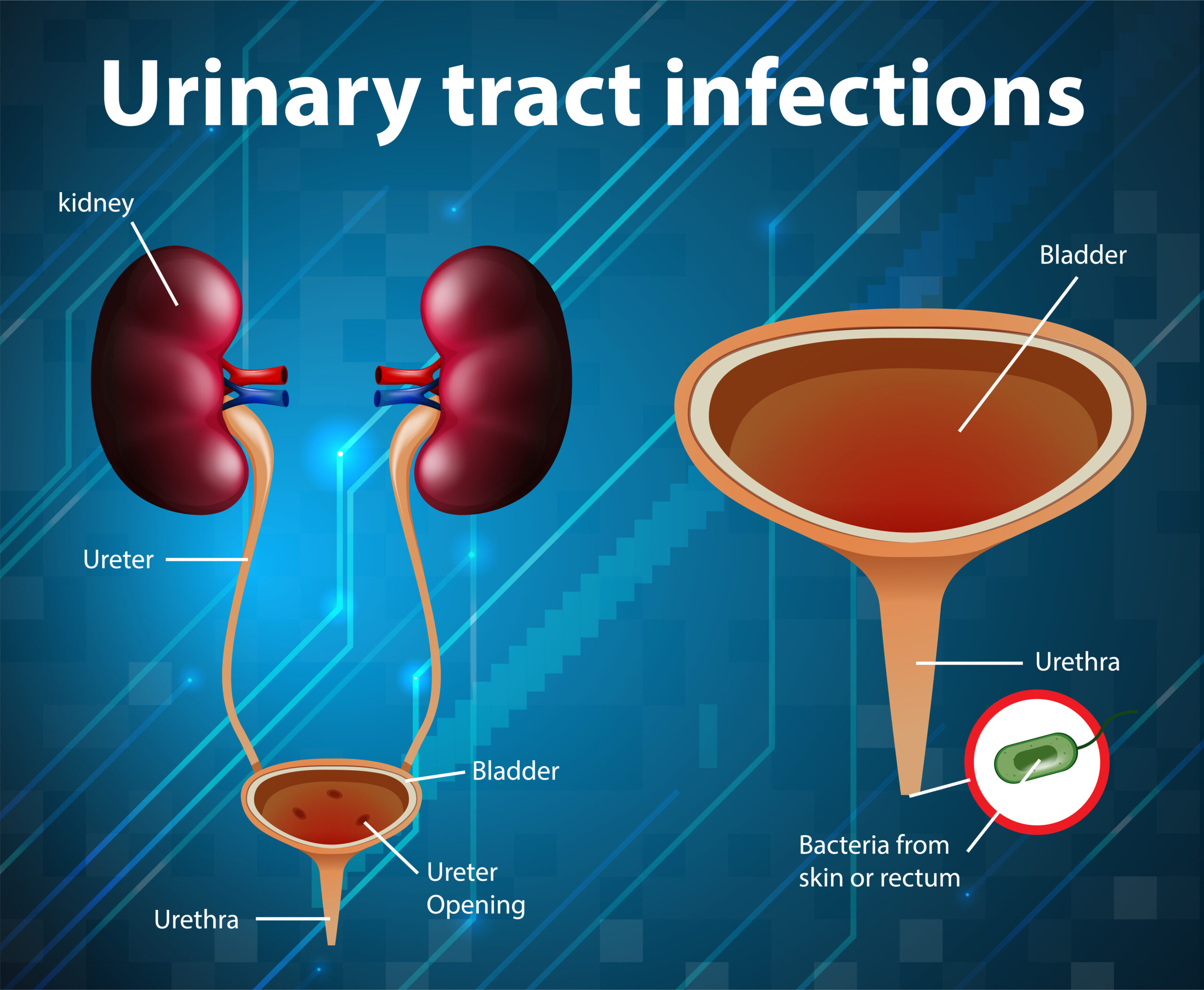Urinary tract infections (UTIs) are more common in women than men. More than 50 per cent of all women will experience a symptomatic UTI in their lifetimes. One reason is that the urethra is shorter in women, so bacteria reach the bladder more easily.
Menopause changes the bacteria of the urogenital tract, which puts women at risk for UTIs. Intercourse may also predispose women to infections. Other causes may be anatomical, kidney stones, or foreign bodies, such as mesh which is sometimes used to treat stress urinary leakage or weakened pelvic muscles. If you experience any problems in the urinary tract, then consult Our Gynaecologist
| Myth | Truth |
| UTIs are transmitted between sexual partners. | Sexual partners do not transmit UTIs. In men, infections are generally caused by an obstruction or abnormality in the urinary tract like a kidney stone or enlarged prostate, having recently had a catheter to drain urine, or having a neurological condition like Parkinson’s that might make draining the bladder difficult. Studies have also shown that uncircumcised men are more likely to get a UTI than circumcised men. |
| Poor hygiene causes UTIs. | E.coli, Enterococcus, Staphylococcus, Pseudomonas, or Klebsiella bacteria are the most common causes of UTIs and bladder infections. Though general hygiene is important, we now know that urine is not sterile and an imbalance in the bladder bacteria or urobiome, the colony of bacteria living in the bladder, is the more likely culprit. When an imbalance occurs, you may experience a UTI. |
| My UTI symptoms should go away entirely after treatment. | After treatment, symptoms may linger for several weeks. During a bladder infection, you may experience pain with urination. Burning during urination is just one UTI symptom. You should also watch for frequent or intense urges to urinate, with very little urine, lower abdominal pain; cloudy or bloody urine; foul-smelling urine or feeling tired. However, if moderate to severe symptoms persist, it is important to notify your doctor. |
| UTIs are the only condition that causes pain with urination, frequency and urgency to urinate. | Other conditions such as interstitial cystitis, sexually transmitted diseases and dietary change mimic the symptoms of a UTI. You need a urine culture to ensure a proper diagnosis when you suspect you have a UTI. |
| I know when I have a UTI and I do not need to be evaluated by my doctor. | If you think you have a UTI, it’s important to talk to a healthcare provider. Only a prescription antibiotic can cure a UTI, and without treatment, the infection could get worse – progressing to a kidney or blood infection with more serious consequences like hospitalization. |
| Cranberry juice can prevent a UTI. | There are varying results in research studies regarding the effectiveness of cranberry juice in preventing UTIs. Most studies do not support drinking it for UTI prevention because it does not contain a high enough concentration of proanthocyanidins (PAC), the substance found in cranberry juice linked to urinary tract health. This juice is high in sugar. You can use cranberry tablets, which have higher amounts of PAC, along with good hygiene and consultation with your physician. |
| Wiping front to back, avoiding tight clothes, and urinating after intercourse will prevent UTIs. | There is no evidence that any of these general hygiene methods help prevent UTIs. However, experts still recommend them as they cost nothing and are easy to do. If it works for you, there is no reason to stop these practices. |
| There is not much I can do to prevent UTIs. | There are several things you can do to prevent UTIs in consultation with your physician. |
These include Initial therapies: probiotics, vitamin C, cranberry tablets Intermediate treatments: D-Mannose, vaginal estrogen cream Advanced treatment: Antibiotics, antibiotic bladder washes A simple thing you can do is to drink more water.







0 Comments